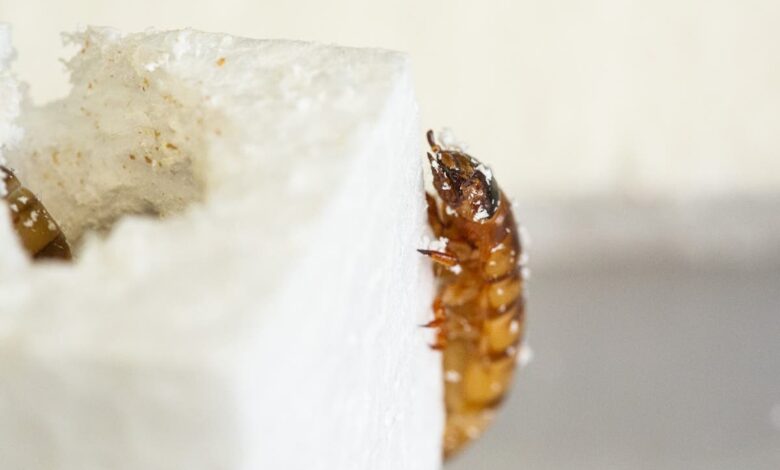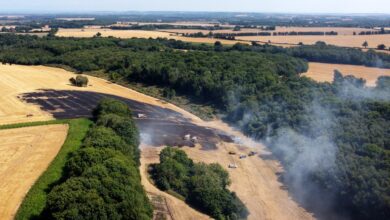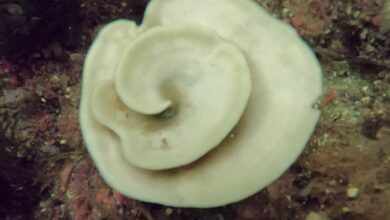‘Superworms’ with appetite for polystyrene could revolutionise plastic recycling, scientists say

Larvae of the darkling beetle, known as “superworms”, are already used by humans as a food for pet reptiles, but they might soon become consumers in their own right after scientists discovered their extraordinary capability for digesting waste plastic.
Scientists at the University of Queensland in Australia say that these humble larvae, Zophobas morio, are not just able to chomp through polystyrene, but actually thrive on a polystyrene-only diet.
The team fed the superworms different diets over a three-week period, with some given polystyrene foam, some bran and others put on a fasting diet.
Dr Chris Rinke from the university’s School of Chemistry and Molecular Biosciences, said: “We found the superworms fed a diet of just polystyrene not only survived, but even had marginal weight gains,” Dr Rinke said.
“This suggests the worms can derive energy from the polystyrene, most likely with the help of their gut microbes.”
Polystyrene is an enormous creator of hazardous plastic waste, which can leach chemicals into water sources and break down into microplastics. So superworm-led organic digestion could be a valuable tool in reducing levels of human pollution if the process can function on an industrial scale.
“Superworms are like mini-recycling plants, shredding the polystyrene with their mouths and then feeding it to the bacteria in their gut,” Dr Rinke said.
The researchers used a technique called metagenomics to find several encoded enzymes with the ability to degrade polystyrene and styrene.
“The breakdown products from this reaction can then be used by other microbes to create high-value compounds such as bioplastics,” said Dr Rinke.
The team said they hoped this bio-upcycling would incentivise plastic waste recycling and reduce landfill.
Co-author of the research, PhD candidate Jiarui Sun, said they aimed to grow the gut bacteria in the laboratory and further test its ability to degrade polystyrene.
“We can then look into how we can upscale this process to a level required for an entire recycling plant,” Ms Sun said.
Dr Rinke said there were many opportunities for the biodegradation of plastic waste.
“Our team is very excited to push the science to make it happen,” he said.
This research is published in the journal Microbial Genomics.





